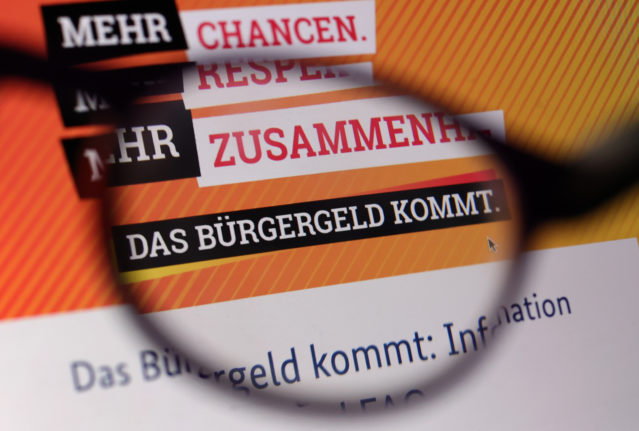“In order to tackle both the housing shortage and climate change more robustly and efficiently, Vonovia and Deutsche Wohnen are joining forces,” said a statement from the company released late on Monday night.
The proposed deal comes after two previous attempts failed to come off, the last having been rejected by Deutsche Wohnen in 2016.
But this latest offer prices Deutsche Wohnen shares at well above their current market value, which stood at €44.99 on close of trade Friday on the Frankfurt exchange.
The markets in Germany are closed for a public holiday Monday.
Deutsche Wohnen shareholders will be offered €53.03 per share: 52 in cash and the rest as the company’s dividend for the 2020 financial year, said the statement.
The previous purchase offer in 2016 saw Deutsche Wohnen oppose the merger, saying the proposed price was too low.
Around half the population in Germany rents. The merger will give birth to a giant of more than 500,000 homes in total.
The two promised to work closely with political decision makers on the sensitive issue of housing supply and prices.
They pledged to limit rent increases until 2026 and to build new apartments in the capital Berlin, which has been hit for years by runaway rent and a lack of affordable housing.
READ ALSO: These are the reasons why so many Germans rent rather than buy
Private housing firms in spotlight over Berlin’s rent cap fail
In Berlin, where around 85 percent of residents are renters, Deutsche Wohnen and Vonovia play a premier role in the housing sector.
They have about 150,000 apartments in total in the greater Berlin area.
Recently both housing companies hit the headlines when Berlin’s Mietendeckel – rent cap – was ruled unlawful by the constitutional court in April after around a year of reduced housing costs.
After the decision, thousands of tenants in Berlin were hit with rent increases and back payments amounting to hundreds or thousands of euros in some cases.
Vonovia, which owns around 42,000 properties in the capital, opted to wipe the back payments for its residents, acknowledging the stress that the Mietendeckel debacle had put on tenants in Berlin.
“The well-being of the people who live in our properties is our first priority,” said CEO Rolf Buch at the time.
“They should not have to suffer any financial disadvantages as a result of political decisions.”
READ ALSO: Stressed and depressed: How Berlin’s Mietendeckel fiasco has affected foreign residents
But Deutsche Wohnen, which owns around 111,000 flats in Berlin and is the largest private housing provider in the city, said it intended to make tenants pay back the difference in rent.
“We are fully aware of the strained situation of the housing market in Berlin,” a spokesperson for the company told The Local in April.
“To completely forego the settlement of outstanding debts, however, would not meet our obligations to the company, its employees and owners.”
READ ALSO: ‘Extraordinary situation’: What can you do if your Berlin landlord demands rent arrears?
The Mietendeckel fallout is likely to have boosted support for a campaign calling for a referendum on expropriating large property developers in a bid to deal with the housing crisis in Berlin.
The “Expropriate Deutsche Wohnen & Co.” initiative targets companies with more than 3,000 apartments in their portfolios.
READ MORE: How Berliner’s are plotting a radical ‘expropriation referendum’ to fight housing crisis
The aim is to bring these companies into public ownership in order to ensure enough affordable housing for people in the city.




 Please whitelist us to continue reading.
Please whitelist us to continue reading.
Member comments